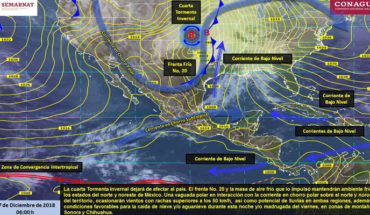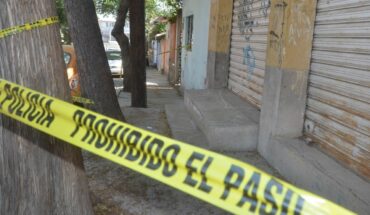We lived the final votes of the historic Constituent Process after an arduous and hard road to write participatively and in democracy our Constitution, the Constitution of Chile and its peoples. It has undoubtedly been an enriching experience and full of new situations and is that the democratic exercise had been alien to much of this society for a long time, this unique moment in our history.
After 10 months of work, the Convention is now preparing to vote on the Replacement Report of the Committee on the Environment, which includes fundamental issues for the transformations that the Chile that aroused demands such as: the Constitutional Statute of the Waters, Constitutional Statute of the Maritime Territory, Food Sovereignty, Constitutional Statute of Energy, Constitutional Statute of Minerals, Economic System and Fiscal Policy and Environmental Human Rights.
With more than 13 years of drought and water crisis, as of April of this year 188 communes, equivalent to more than 50% of the total country, were in force with water scarcity decrees (DGA 2022), distributed from Atacama to Aysén, thus affecting a population of more than 8 million people. Thus, it seems ridiculous that it is not considered a priority to approve the Constitutional Statute of Waters in a country with 1,251 rivers and 24,000 glaciers (DGA 2016), which after years of struggles comes to finally establish a regulation of water as a more just and equitable natural common good. Regarding water governance, this would be articulated from the Basin Councils allowing the incorporation for the first time of actors that with the current regime have been prevented from participating, since decision-making has been limited exclusively to those who are holders of water use rights (DAA), thus excluding all the rest of the basin due to the fact of not being holders.
Indeed, the crux of this problem of participation lies in regulation at both the constitutional and legal levels. In the first case, the recognition of property established by the current Constitution on water use rights in its article 19 nº 24 paragraph 11, has meant an obstruction to the legal modifications that have been wanted to be made in the matter, since, the most relevant reforms -2005 and 2022- had an extensive legislative process that implied in both a discussion of more than 10 years in circumstances that the changes required were urgent. It also represents a true case study, since, out of a total of 92 countries (including the entire OECD) Chile would be the only one to incorporate water in its Fundamental Charter to the eaves of private property (UC 2021). For its part, the Water Code establishes that each “… comunero will have the right to one vote for each share he owns…”, and to be a commoner it is necessary to belong to the user organization, consequently, we return to the same point where the participation is subject to the purchasing power of the holder.
The Statute also provides that the management will remain in the National Water Agency and not in more than 50 government institutions as is the case today (FCH 2021), thus generating a technical and independent institutionality with capacities and attributions to be able to assist the Basin Councils and thus tend to an integrated management of basins with the participation of all actors contributing to a fairer governance, inclusive and equitable.
The report also states that “the territorial sea, beaches and oceanic and coastal ecosystems are inappropriable natural commons.” Which will represent a great advance in the state management of these spaces, because today, for example, the dunes are practically outside the current definition of coastal edge, being mostly on private property and, therefore, it is not possible to protect them from anthropic threats such as real estate, nor is there regulations that grant them effective protection. These ecosystems are essential for coastal dynamics and constitute a natural protection against rising sea levels, swells and tidal waves, there is no doubt that they must constitute a natural common good in the custody of the State.
Among other issues, tomorrow’s vote includes an indication of Article 17 that establishes food sovereignty, noting that “It is the duty of the State to ensure food sovereignty and security. To this end, it will promote the production, distribution and consumption of food that guaranteesthe right to healthy, adequate and informed food, fair trade and ecologically responsible food systems”. This is having the possibility of looking for the best way to ensure the food of our population, it does not mean eliminating exports or imports, but “having our backs covered” with national production and agricultural and food policies, so that the recurrent market crises do not endanger domestic supply or unleash inflation. Food sovereignty also means that we will seek to promote the best market systems, those that allow us to offer accessible, healthy and quality food. This is in accordance with the articles that are already part of the constitutional proposal on the “promotion of local markets, free fairs and short circuits of commercialization and exchange of goods and products related to rurality” and the social and ecological function of the land.
These are only part of the Statutes included in the Environment Report that we will debate and vote on in the Plenary of the Convention this Saturday. Each of its articles has considered the opinions of experts, academics, socio-environmental leaders and guilds and each of the 15 Initiatives of Popular Norm entered into the Commission. The new Chile requires a new Constitution and that new Constitution if or if it must move towards the balances that for years and decades the communities in the impacted territories have claimed, between a new economic model and the protection of Nature and the ecosystems we inhabit.
Follow us on
The content expressed in this opinion column is the sole responsibility of its author, and does not necessarily reflect the editorial line or position of El Mostrador.





